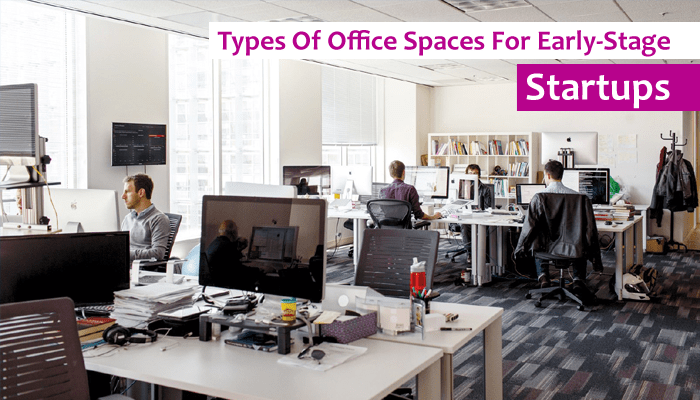In the beginning, startups are often forced to get creative. When selecting a perfect, yet functional office spaces where they can get work done and scale. As long as your work can be accomplished with a laptop and a Wi-Fi connection, you have great workspace options to choose from.
So, before you obligate yourself to work in a space that doesn’t meet your needs. Consider these familiar workspace options and the pros and cons of each.
Private Leased Offices
Eventually, every founder is starry-eyed with thoughts of having their own private office space and the company’s name on the door. This can be too prohibitive for most lean startups to handle in the early stages where funding is typically an issue.
If your startup is of the variety where private offices are not optional (or if you just prefer to have your own dedicated space from the outset), then one of the pros to leasing or renting commercial office space is the stability and professionalism it exudes from the start.
A physical office location not only conveys a professional image, it can also impress potential customers and employees. If it’s in budget, for some founders, it helps the venture seem more real and established. This can help stimulate productivity and strengthen commitment to the company’s vision or mission.
The best way to locate great office space for rent is to search online. Websites like Sharemyoffice, Officesnapshots, sharedesk, TheSquareFoot, liquidspace, 42floors, and more are loaded with plenty of fantastic spaces to choose from.
Startups Shared Office Space
If you aren’t quite ready financially to rent your own private office space, you might consider sharing office space with other startups or small businesses. This can give you the benefit of having a professional office space to meet with investors while lessening the costs of renting.
Another option that falls under the shared office space umbrella is to make use of unused space that one of your investors may have on hand. This could essentially be a win-win situation for an investor.
Startups Coworking Spaces
For anyone unfamiliar with the concept, coworking spaces are shared work environments that allow individuals or small teams to pay a fee in exchange for an affordable place where they can work.
Although coworking spaces vary in the number of workers they can accept, from very modest numbers to very large numbers, you can generally count on it to be an open office concept. You can expect to be working side by side with other self-employed professionals and startup teams.
The advantage of a coworking space is the affordability and having a designated place where your team can meet and collaborate daily. The unique aspect of coworking spaces is that they foster a sense of community within the particular space.
Often these spaces host founders from various industries running a variety of businesses, so the potential for cross-collaboration and creativity is high.
Home Office Space
The most affordable option of all is to work from home. The idea of creating a home office out of a spare room, garage, kitchen table, or living room nook is very attractive to many entrepreneurs. Forget the long commute, added office expenses, and lack of convenience. Many reputable and successful startups have been built from the garage or kitchen table of one of the founders.
Another advantage of working from home is the privacy it gives your team. Coworking and shared spaces can be too open if your startup deals with proprietary technology.
The disadvantage is convenience — especially if you’re in a client-facing industry where location is important for customers and new employees. While you may enjoy the savings, playing host to a growing startup team daily can become a burden. Not to mention that your home may not be located in an area that is convenient for everyone.



